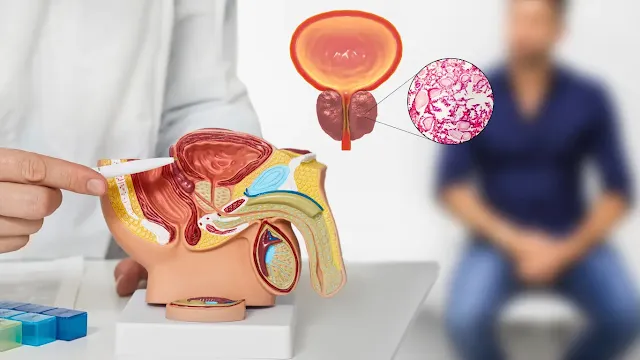
Chronic prostatitis is a condition that affects many men, often causing discomfort and distress. However, one of the most challenging aspects of this condition is its elusive and fluctuating symptoms. In this article, we will delve into the world of chronic prostatitis, exploring the various symptoms it can present and how they can change over time. Understanding these fluctuations is crucial for better management and treatment.
Unraveling the Mystery: Chronic Prostatitis
What is Chronic Prostatitis?
Chronic prostatitis is a long-term inflammation of the prostate gland, a walnut-sized organ located just below the bladder in men. This condition is not caused by bacterial infection, making it distinct from acute bacterial prostatitis.
✅The latest prostate: Click Here
The Four Subtypes
There are four subtypes of chronic prostatitis, each with its own unique characteristics:
1. Chronic Bacterial Prostatitis
This subtype is characterized by recurring bacterial infections in the prostate gland.
2. Chronic Pelvic Pain Syndrome (CPPS)
CPPS is the most common form of chronic prostatitis, and it doesn't involve bacterial infection. Instead, it causes pelvic pain and discomfort.
3. Asymptomatic Inflammatory Prostatitis
In this subtype, there are no apparent symptoms, but inflammation is present in the prostate gland.
4. Noninflammatory Chronic Pelvic Pain Syndrome
Similar to CPPS, this subtype causes pelvic pain but without inflammation in the prostate.
✅Flow force: Click
Here
The Shifting Landscape of Symptoms
The Onset and Early Symptoms
Chronic prostatitis often begins with subtle symptoms that can be mistaken for other issues, such as urinary tract infections. These early signs may include:
- Frequent Urination
Men with chronic prostatitis may find themselves rushing to the bathroom more frequently.
- Urinary Urgency
A sudden, compelling need to urinate can disrupt daily life.
Fluctuations Over Time
One of the most confounding aspects of chronic prostatitis is how symptoms can fluctuate over time. Some days may be relatively symptom-free, while others can be quite uncomfortable. This variability can be frustrating for patients.
- Intermittent Pain
The pain associated with chronic prostatitis can come and go unexpectedly.
- Changes in Urinary Symptoms
Urinary symptoms, such as burning or discomfort, may intensify or lessen unpredictably.
Factors Influencing Symptom Fluctuations
Stress and Anxiety
Stress and anxiety can exacerbate the symptoms of chronic prostatitis. Managing these psychological factors is often essential for symptom control.
Diet and Lifestyle
Certain foods and habits, such as caffeine and alcohol consumption, can worsen symptoms. Maintaining a healthy diet and lifestyle can help manage symptoms.
✅The latest prostate: Click Here
Seeking Relief and Treatment
Medical Interventions
Treatment for chronic prostatitis may include:
- Medications
Your doctor may prescribe medications to reduce inflammation or manage pain.
- Physical Therapy
Physical therapy can help with pelvic floor muscle dysfunction, a common issue in chronic prostatitis.
- Lifestyle Changes
Adopting a healthier lifestyle, including stress management techniques, can significantly improve symptoms.
✅Flow force: Click Here
Conclusion
Chronic prostatitis is a complex condition with elusive and fluctuating symptoms. Understanding the various subtypes, early signs, and factors that influence symptom fluctuations is crucial for men dealing with this condition. Seeking medical guidance and making lifestyle changes can significantly improve one's quality of life.
Frequently Asked Questions
- Can chronic prostatitis be cured?
No, chronic prostatitis cannot always be cured, but its symptoms can be managed effectively with the right treatment and lifestyle changes.
- Is chronic prostatitis contagious?
No, chronic prostatitis is not contagious. It is not caused by bacteria or viruses that can be transmitted to others.
- Can stress make chronic prostatitis worse?
Yes, stress can exacerbate the symptoms of chronic prostatitis. Managing stress is an essential part of symptom control.
- How is chronic prostatitis diagnosed?
Chronic prostatitis is typically diagnosed through a combination of medical history, physical examination, and laboratory tests, including urine and blood tests.
- Are there natural remedies for managing chronic
prostatitis symptoms?
Some men find relief from chronic prostatitis symptoms through natural remedies like dietary changes, hot baths, and relaxation techniques. However, it's essential to consult with a healthcare professional for personalized guidance.
✅The latest prostate: Click Here
